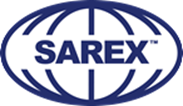
Acceptance Criteria & Profile
Types of Materials We can Recycle
-
Specifically; Grease, Grit, and Debris
-
Contact us for more information.
-
Contact us for more information.
-
Recovered oil is used for recoverable energy.
-
A petroleum mixture of finished product contaminated with water and solids accumulated from the petroleum storage industry.
-
Used and unused petroleum distillates and oils contaminated with water and solids destined for recycling commonly known NJDEP ID 72.
Petroleum refinery primary oil/water/solids separation sludge, which is any sludge generated from the gravitation separation of oil/water/solids during the storage or treatment of process waste waters and oily cooling waste waters from petroleum refineries.
Sludges generated in oil/water/solids separators; tanks and impoundments, ditches, other conveyances including sumps, and stormwater units receiving dry water flow. Sludge generated in stormwater units that do not receive dry weather flow, sludges generated from non-contact once-through cooling waters segregated for treatment from other process or oily cooling waters.
These secondary sludges include, but are not limited to; all sludge and floats generated from Induced Air Flotation (IAF) units, tanks, impoundments, and all sludge generated in Dissolved Air Flotation (DAF).
DAF float from the petroleum refining industry.
Slop oil emulsion solids.
Heat exchanger bundle cleaning sludge.
American Petroleum Institute (API) separator sludge.
Tank bottoms (leaded).
Crude oil storage tank sediment from petroleum refining operations.
Clarified slurry oil tank sediment and/or in-line filter/separation solids.
-
Contact us for more information.

